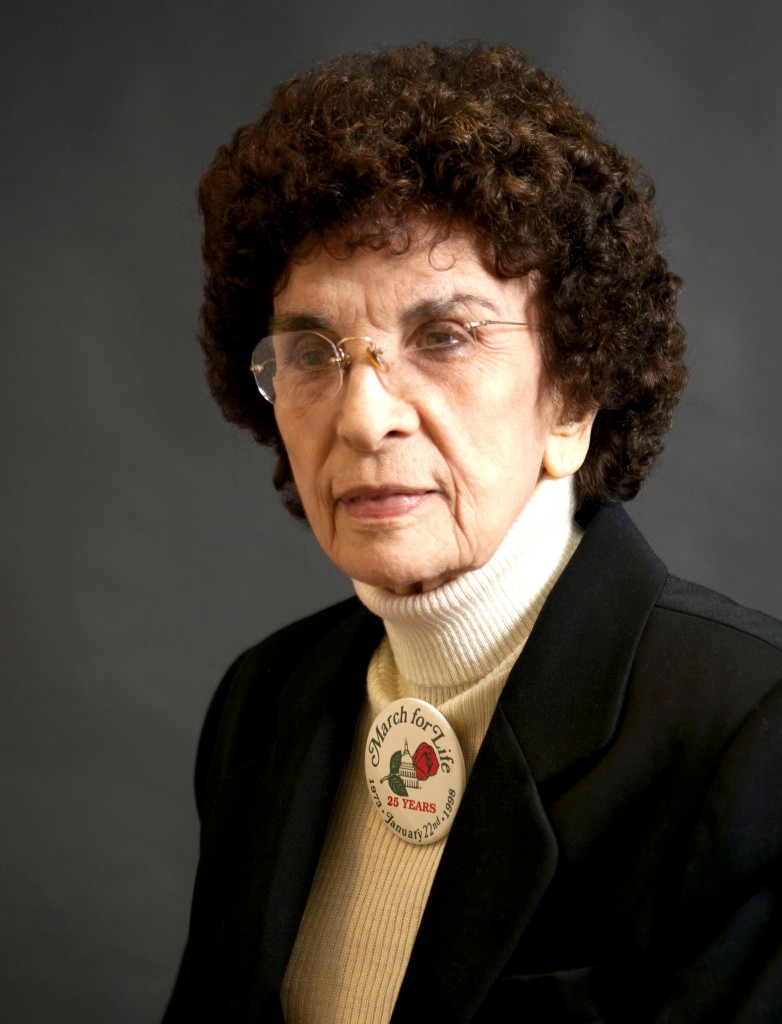
Nellie Gray, the American woman who started the annual March for Life protest against the US 1973 Supreme Court decision legalising abortion nationwide and which grew into one of the signature events of the pro-life movement, has died at age 86.
She was found dead in her home on August 13 in Washington by a March for Life staffer.
After the first march in 1974, Gray, a Texas native, established the March for Life Education & Defence Fund to sustain it.
Her initiative ended up mobilising millions of Americans over decades to protest the nation’s decision to legalise killing the unborn in the wake of the famous Roe v Wade case heard before the US Supreme Court.
Each year in her remarks, Gray exhorted pro-lifers to promote and adhere to a series of “life principles” that would eliminate abortion and enhance life, to which she said there should be “no exception! No compromise!”
Gray was a member of St Mary, Mother of God Parish in Washington.
Born on June 25, 1926, in Texas, Gray served in the Women’s Army Corps during World War II. She later earned a bachelor’s degree in business and a master’s in economics.
She worked for the US federal government for 28 years at the State Department and the Department of Labour, while attending Georgetown University Law School.
Gray later practiced law before the US Supreme Court.
In a 2010 profile, Gray said she wasn’t a Catholic as a child, but “I had elements of the Catholic faith in my life.”
As a young woman, she encountered a priest who brought to light what the Catholic Church was about, and he tutored her until she joined the Church.
Gray also spoke of the march’s origins. “I received a call from the Knights of Columbus,” she recalled. “I didn’t even know who they were, but they explained their stance against abortion and needed a place to meet to discuss plans for a march. That place was my living room. About 30 people gathered there and they asked if I could help get speakers for the event since I knew Capitol Hill well.”
“What I couldn’t get was a master of ceremonies for the event,” she added. “Politicians didn’t want to get involved in a march, and people at that time weren’t interested in marches after the civil rights movement and other things. That left the emcee job to me.”